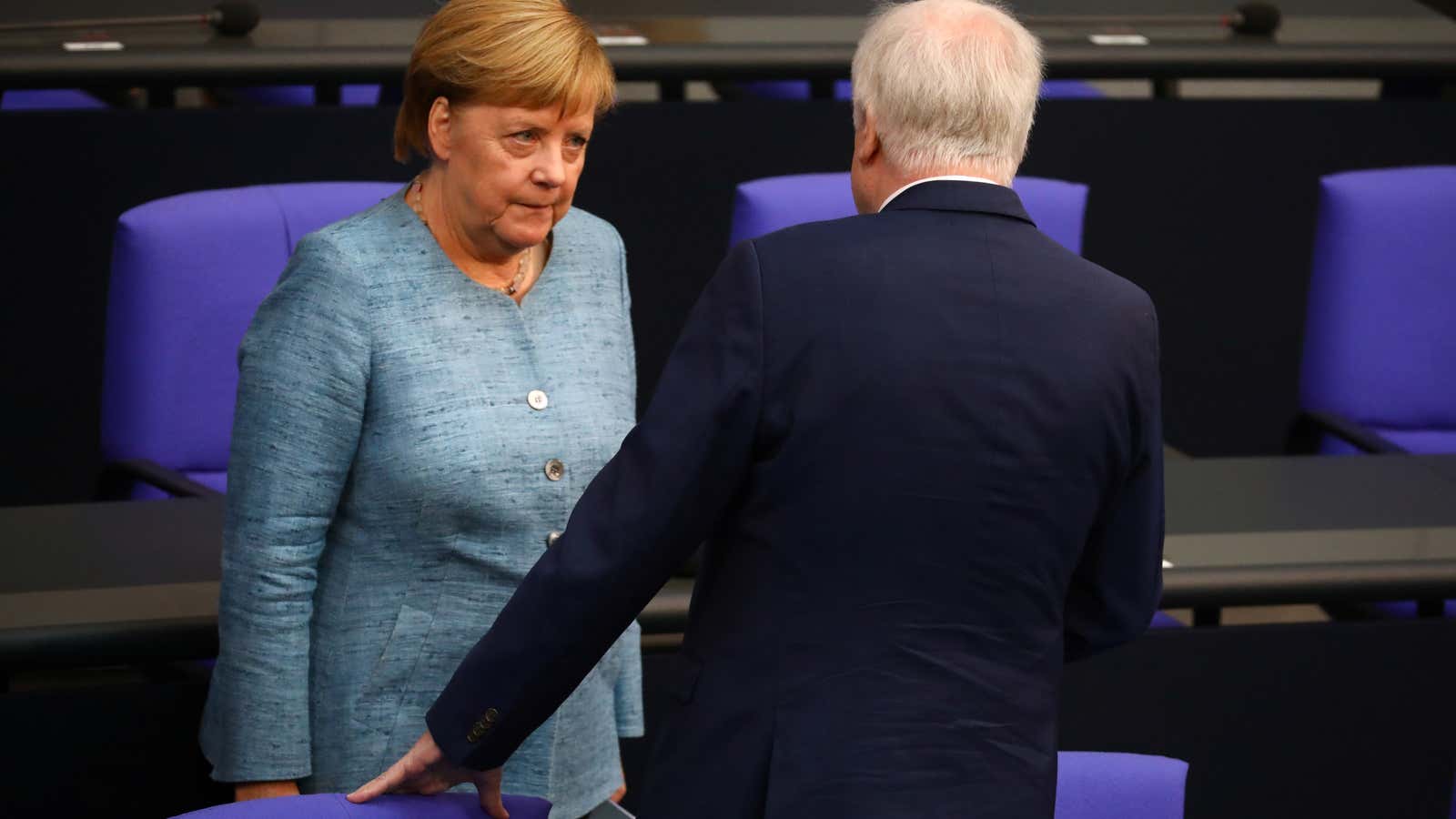Angela Merkel’s fourth term has been anything but easy so far. Perhaps the biggest thorn in her side has been interior minister Horst Seehofer, whose hardline stance on migration has forced the chancellor to steadily rein in her open-door refugee policy.
On Tuesday, Merkel was back negotiating with her nemesis Seehofer, head of the Christian Social Union (CSU), and coalition partners the Social Democrats. This time, the question was what to do with Germany’s spy chief Hans-Georg Maaßen, who had caused a storm of controversy for suggesting that a video of recent far-right riots in Germany could be fake news.
Ultimately, Merkel and Seehofer reached a compromise to remove Maaßen from his post. Instead, he got a job in the interior ministry, where, according to Der Spiegel, his base salary will actually increase by €2,580 per month. The outcome highlights the reality of Merkel’s current tenure: A hard-won coalition in Berlin has put her in a weak position to push back against the CSU and its increasingly strident efforts to lure back people who voted for the anti-immigrant Alternative for Germany in the last election.
The debate over Maaßen again put Merkel in the middle between the CSU and Social Democrats, who wanted the head of the domestic security agency sacked. Calls for his removal had been getting louder since he questioned the authenticity of a recording of the Chemnitz riots, which erupted after a German man was allegedly murdered by a Syrian and an Iraqi on August 26. In the video of the far-right demonstration, men appear to be chasing a person who looks like a foreigner. Merkel’s spokesperson had condemned the hounding of foreigners (“hetzjagd”). But Maaßen told a German newspaper, “I share the skepticism towards media reports of right-wing extremists chasing down foreigners in Chemnitz.”
His reaction played right into the hands of the far-right Alternative for Germany (AfD) party. Maaßen was also accused of giving advice and sensitive data from his annual report to the AfD, increasing concerns over his political sympathies.
“Mr. Maaßen will become state secretary in the federal ministry of the interior in the future,” the government said in a statement. “Interior minister Horst Seehofer values his competence in matters of public security, but Mr. Maaßen will not be responsible for the supervision of the Federal Office for the Protection of the Constitution in the ministry.”
The fact that Maaßen is not being punished prompted angry responses from leading German politicians, as well as many media outlets. Former vice-chancellor Sigmar Gabriel described it (link in German) as “madness.” The minister president of Lower Saxony, Stephan Weil, noted (link in German) that “the chancellor’s authority has been seriously damaged by the conflicts with the CSU leadership. “
Seehofer, who almost brought down the government by threatening to resign this summer in a fight with Merkel over tightening migrant policies, has backed Maaßen all along. In fact, he will remain Maaßen’s boss in the interior ministry.
